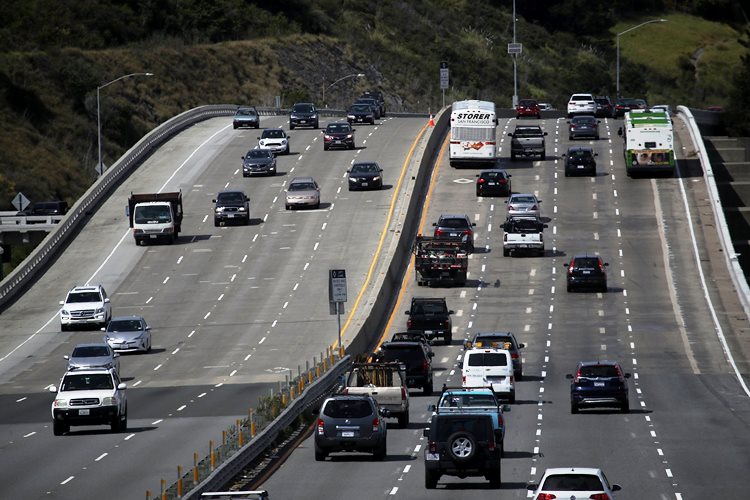It doesn’t take much for a driver’s attention to be diverted. Humans today have shorter attention span given modern gadgets like mobile phones that can easily distract us. Combining all these, it can prove reckless for a driver on the highway moving at an average of 100km/hr. where a split second distraction can prove fatal. We will look at some useful safety tips that if followed can avoid catastrophic car accidents and save lives.
Always Buckle Up

I can’t stress more on this, buckling your seat-belt is essential. Seat-belt use has a very high propensity to save lives in the case of an accident. Yet some drivers and passengers don’t take the risk seriously and still don’t wear seat-belts. Before leaving home, be sure to put on your seat-belt and remind your fellow riders too so you all can be safe while on the highway.
Put Your Mobile Phone Away

It can be tempting to reach for your mobile phone when you hear that notification sound, but it’s especially unsafe to text and drive on the highway. Sending or reading a text takes your eyes off the road, it’s like driving at a high speed with your eyes closed and this is very dangerous. Don’t reach for your mobile phone while driving to keep yourself, riders and other drivers safe. Instead, wait until you’ve pulled over to a safe location before responding to texts and notifications. If you must answer your mobile phone, there are many modern hand-free devices specifically designed for drivers you can use. Visit our store HERE to see what’s available.
Use The Left Lane For Over-Taking

Be considerate of other drivers by driving in the right lane and using the left lane for over-taking. If you stay in the left lane and other drivers behind you need to pass, you maybe causing traffic to build up behind you and this can be a safety hazard. If you don’t intend to pass another driver, be considerate and allow other drivers to pass on your left.
Get Up To Speed When Entering The Highway

When merging onto the highway, gradually but steadily get up to speed and help prevent other drivers from having to put on brakes or change lanes. By getting up to speed before getting onto the highway, you can prevent unnecessary traffic movement and even accidents from other drivers braking abruptly.
Use The Pointer Lights When Changing Lanes

When overtaking or changing lanes use the pointer light to indicated to other drivers or road users your intention. Engage the pointer light at least 200 metres before maneuvering and use your rear mirrors to watch for oncoming vehicles.
Don’t Drive Too Closely

Don’t drive too closely to the vehicle ahead of you while on the highway. While you might be tempted to rush someone, you could end up putting your life and others lives at risk. If the person ahead of you happens to hit their brakes abruptly, you may not have time to stop. Leave some extra buffer room between yourself and the next vehicle so you and other drivers can stay safe. Consider the type of vehicle that’s ahead of you, and leave enough room so that you have three or more seconds to stop.
Do Not Over Speed

Be mindful of your speed while on the highway. Over-speeding continues to be the number one cited driver-related factor in highway fatal crashes. As tempted as you might be to speed, it could cost you, your riders and other drivers their lives. Always take note the of the speed limit and adjust accordingly.
Road Rage

Road rage is a real issue, but it’s better to overlook another driver’s mistake or negligent behavior. A reasonable number of traffic fatalities are caused by aggressive driving. While it might not be easy to ignore someone else’s mistakes on the highway, it’s necessary. Rather than getting frustrated and driving aggressively after another driver, it’s better to take a deep breath, and let it go.
Be Considerate Of Heavy Vehicles

It’s important to remember while driving on the highway to be considerate of tractor or trailer drivers. One good thing to remember is that if you’re behind a truck and not able to see the driver, then he or she likely cannot see your car either. If you want to pass a tractor trailer, be sure to give the driver plenty of space and signal that you are changing lanes. Tractor trailer drivers aren’t able to stop as quickly as other drivers, so be mindful before merging in front of them.
Take Breaks

On long trips, you’re bound to get tired. Whenever you’re feeling drained, it’s better to stop and take a break. Usually, we try to brush off our tiredness by turning on the music or rolling down the windows and continuing right along, but this can be a reckless choice. Pull over to a safe location or have a plan to switch drivers. By stopping to allow yourself to rest physically and or mentally, you’re helping to prevent accidents.
Drive According To Weather Conditions

Stay aware of weather conditions while on the highway. During inclement weather such as rainy conditions, you need to be more alert and provide yourself with more time to react. Don’t always assume the roads are safe for driving the speed limit, especially in low-visibility conditions. That’s why it’s a good practice to reduce your speed and give yourself some buffer room.
Never Drive Under The Influence

Don’t drink and drive or get on the roads incapacitated. Driving under the influence and incapacitated driving can both be costly risks. High fatalities occur due to drunk driving. When you are not fully aware and functioning, you’re not as likely to make good judgments while on the road. You should leave the driving for someone else or use a cab service.
 Spot Dem Everything About Cars
Spot Dem Everything About Cars






